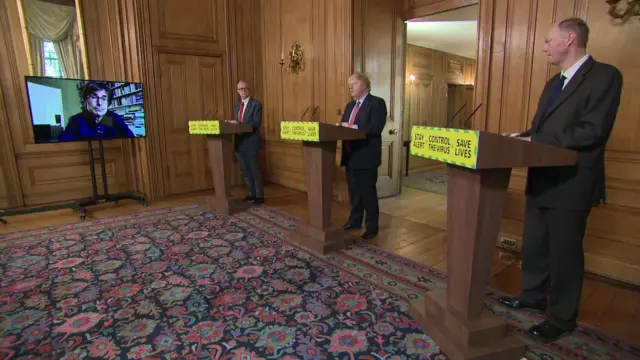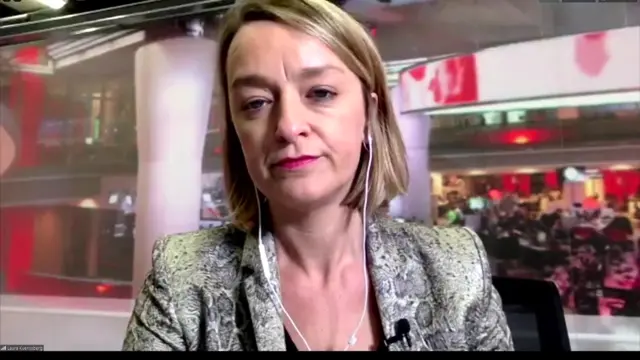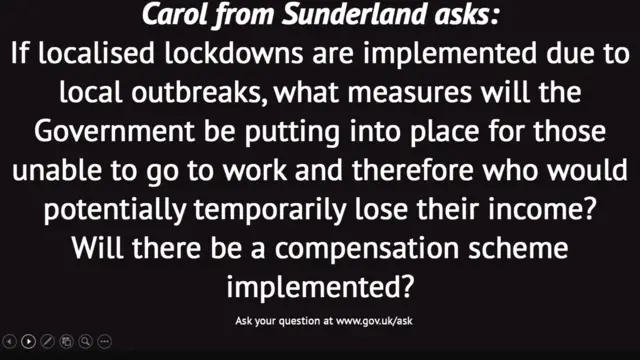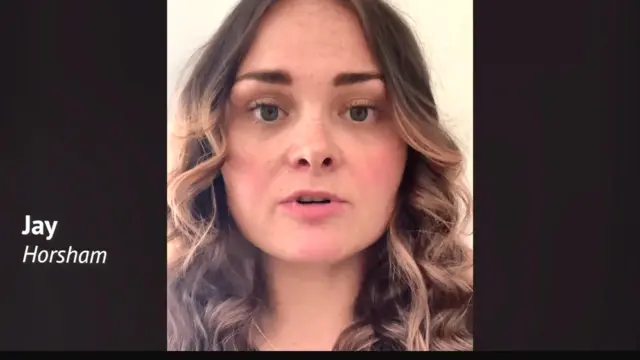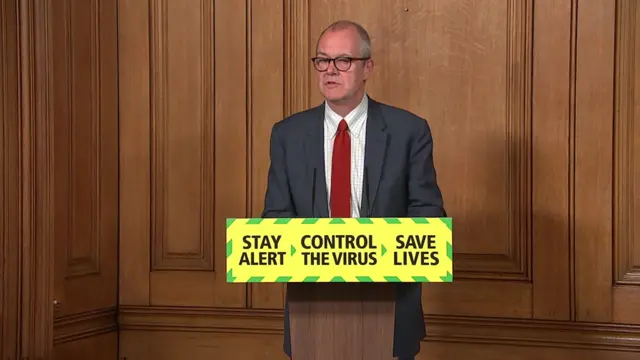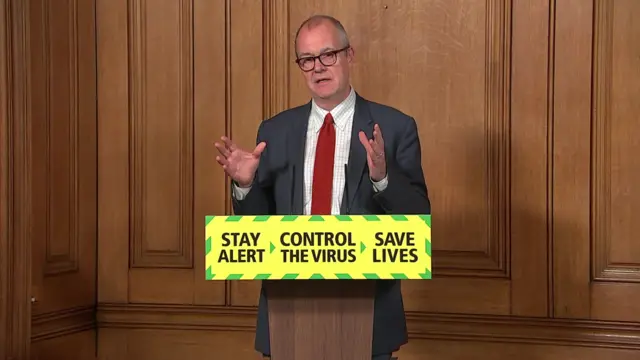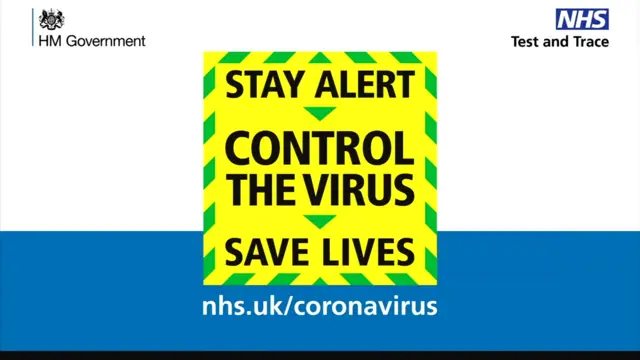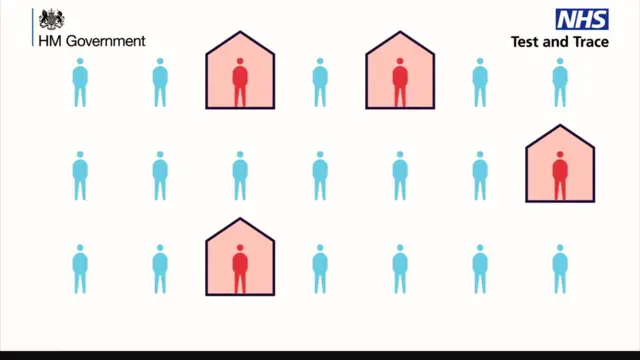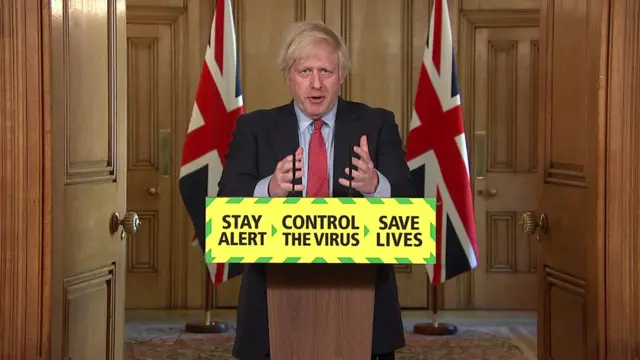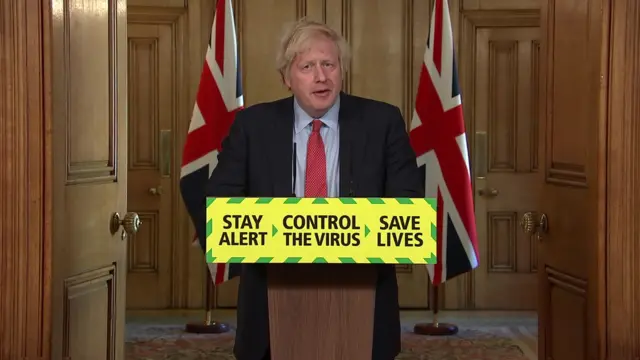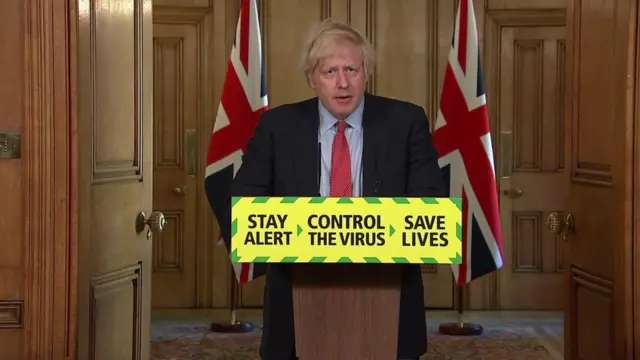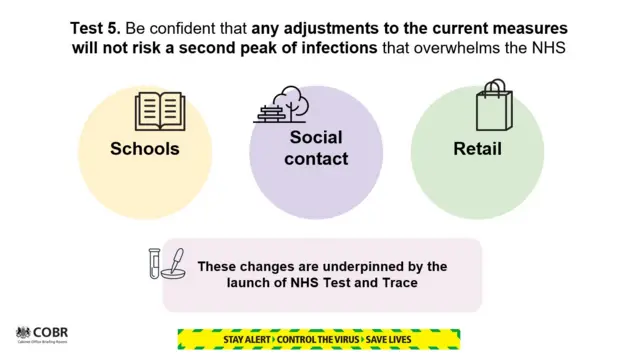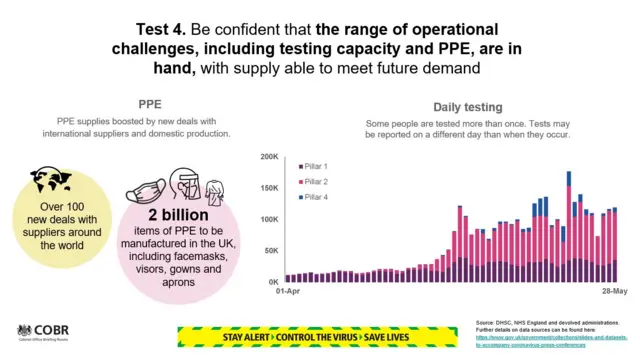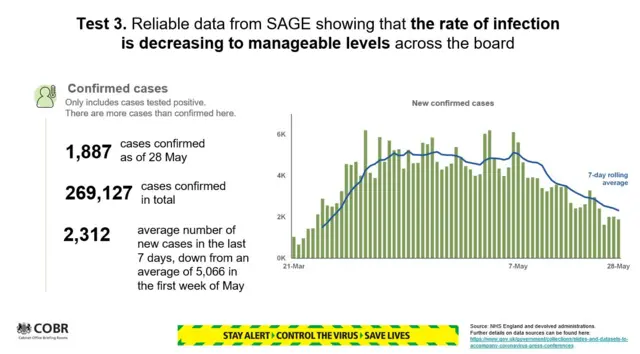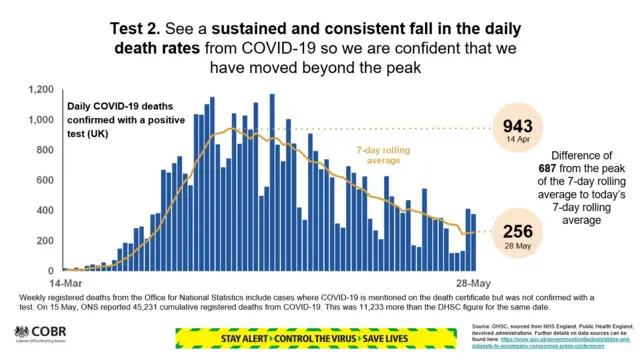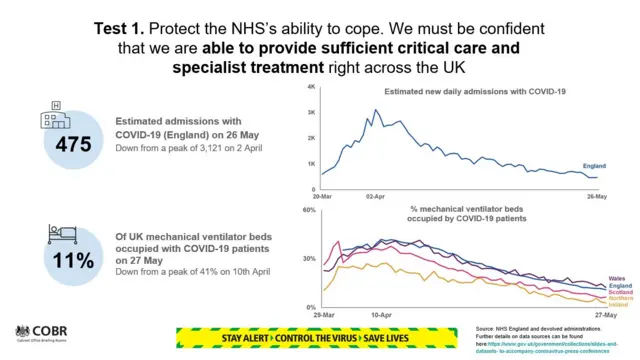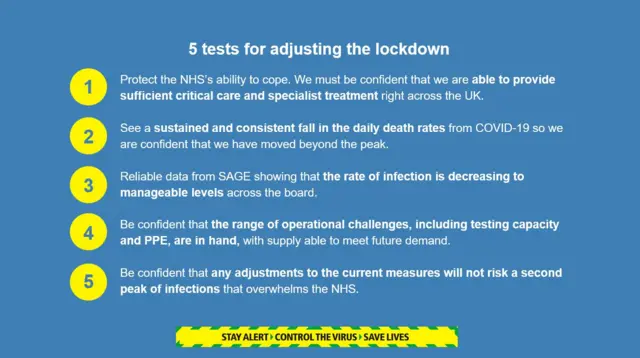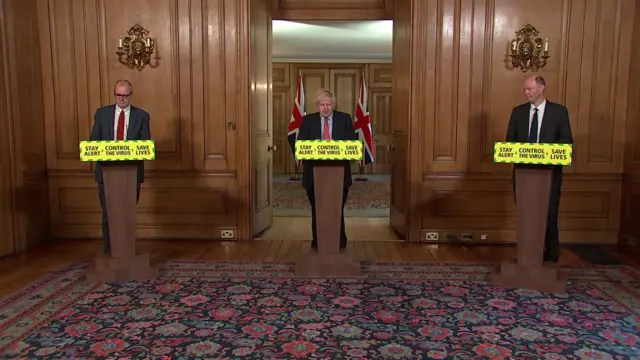Prof Whitty: No desire to get pulled into politicspublished at 17:43 BST 28 May 2020
The next question comes from Sky News, asking Prof Whitty and Sir Patrick if they are comfortable with not being able to answer the questions about Mr Cummings.
Prof Whitty says: "The desire not to get pulled into politics is far stronger for Sir Patrick and me than the prime minister."
Sir Patrick adds: "I am a civil servant and don't want to get involved in politics at all."
Mr Johnson says he has "no choice" but to get involved, but moves onto the second question about whether people must isolate "no ifs, no buts", even if they have childcare issues - another nod to Mr Cummings' reasoning for breaking lockdown.
The PM says: "If you get contacted and told you have been in 2m of someone for 15 minutes that has the virus... then yes, you must self-isolate.
"I know that is going to be hard, but do not forget this is the way to beat it."
Prof Whitty adds it can take two or three days before symptoms show, for two, so if those asked to isolate don't, they are "the biggest risk of unwittingly having the infection without symptoms and spreading it for two or three days".
